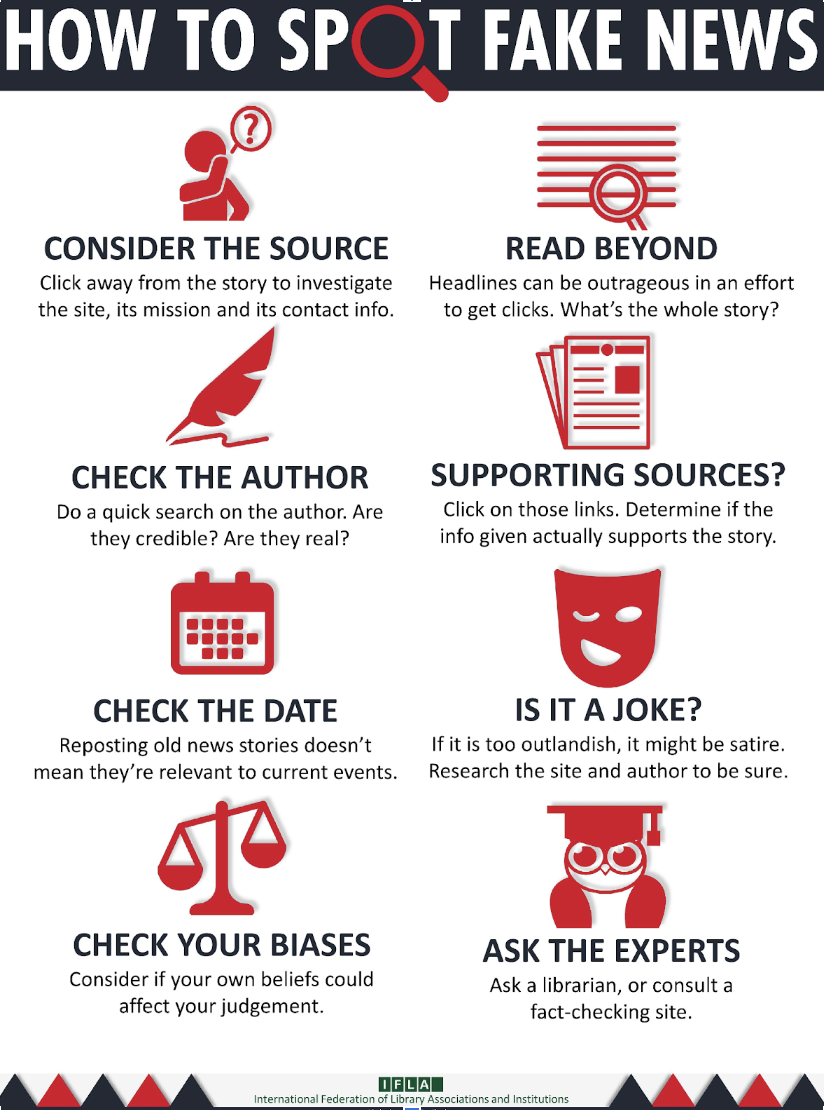‘Is It True?’ The Importance of Fact-Checking in PR
Before You Hit 'Post': Why PR Pros Must Prioritize Truth Over Speed
Photo credit: Squarespace
In today’s online world, information spreads rapidly, often with misinformation and disinformation behind it. For PR professionals, especially those working in fast-moving industries like sports, the pressure of being first should never outweigh the responsibility of being accurate.
With the rise of social media and instant news updates, it is important to be cautious about the information you share because all it takes is one mistake for the public to lose trust in you or the company. Trust is something a PR professional can’t afford to lose.
Why Fact-Checking Matters In PR
Credibility is the foundation of public relations. If the public can’t trust the information you share, your message, reputation and credibility will suffer. This will damage not only your company's image but also the trust it has built. Ethical practices are at the core of the public relations industry and create the foundation of what we’re taught as we enter the field.
The Public Relations Society of America is committed to ethical practices, emphasizing values like honesty and transparency. Being credible involves transparency and accuracy. By using ethical practices in PR, you will gain trust, enhance credibility, build relationships and ensure responsible and appropriate communication.
In terms of the sports world, “fact-checking before publishing is crucial because it directly impacts the game day experience,” Jose Perez, the Associate Director of Marketing and Fan Engagement at California State University, Long Beach, said. “Providing incorrect information can lead to confusion or frustration for fans, and may even determine whether they choose to return in the future.”
For example, consider the situation from March 2024 with Major League Baseball star Shohei Ohtani and his ex-interpreter, Ippei Mizuhara, who was accused of illegal gambling and financial fraud to pay off personal debt. Early reports falsely suggested Ohtani was involved in this scandal. As misinformation began to spread, Ohtani faced public backlash, much of which was based on speculation.
However, following investigations and multiple public statements from Ohtani, it was clarified that he was unaware of the illegal gambling going on. Despite the clarification, the damage caused by the initial wave of misinformation left a lasting mark as this scandal grew.
This situation highlights the rapid speed at which information spreads and how the lack of fact-checking can have major consequences for individuals, companies and public trust.
How to Avoid Spreading Misinformation - A PR Student’s Guide
Before sharing or reacting to any news, be sure to check where this information is coming from. Make sure the information is credible and coming from a reliable source, not just someone random on social media.
Cross-Check the Facts: Even if a report seems credible, always verify it with another reliable or trusted source. If you are working in a PR role, always double-check who the information is coming from and where it originated.
Prioritize Official Statements: When crises or rumors break out, don’t rush to respond with speculation. Wait for an official statement to be released, as these provide essential information on an ongoing situation and help control the message.
Understand the Impact of Your Words: In PR, words carry serious weight. A poorly worded statement or post can rapidly escalate a situation or lead to misunderstandings. Always use clear, concise language when posting or writing.
In PR, your credibility is everything. Especially in high-pressure, high-visibility industries like the professional sports industry.
Athletes, franchises, coaches and fans can all be affected by how we handle and communicate information.
As future professionals, students and those in the field must make fact-checking a consistent habit when writing, sharing or receiving information. T
his is an essential part of the career, not just a step in your career. Making fact-checking a habit will benefit you, your organization and your audience.
It’s not about first; it's about being right.
Photo credit: International Federation of Library Associations and Institutions
Sara Crespo
Public Relations Major, Spring 2026
Sports Marketing Intern, California State University, Long Beach



